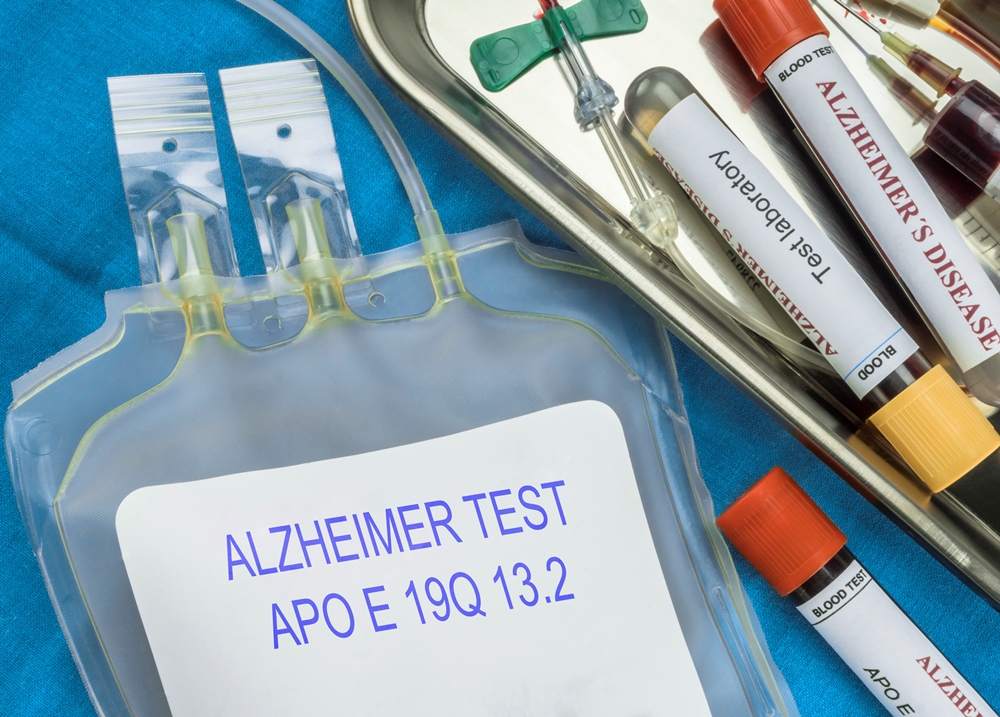News
Study aims to unlock next-generation cancer treatments from survivors

British techbio company Etcembly is teaming up with researchers and clinicians from the University of Surrey to launch a new study aimed at transforming the future of cancer treatment.
By analysing the immune cells of cancer survivors, this research could reveal untapped targets that could deliver the next generation of immunotherapies.
In recent years, treatments that harness a patient’s own immune system to fight cancer have become a key pillar of oncology.
However, these drugs don’t work for all, and a wider range of novel immunotherapies is urgently needed.
T cells – specialised immune cells that recognise and destroy cancer – are a vital part of the immune response against the disease.
However, the specific molecules that these cells target within tumours remain unclear.
The collaboration between Etcembly and Dr Nicola Annels at the University of Surrey, together with Professor Hardev Pandha at the Royal Surrey Hospital, will take a fresh approach to finding these targets by analysing samples from patients who have survived various cancers for more than three years.
By uncovering the molecules that T cells use to recognise and destroy cancer cells, the team hopes to unlock novel targets for breakthrough treatments, including Etcembly’s own pipeline of immunotherapies.
Nick Pumphrey, Chief Scientific Officer at Etcembly: said, “We’re delighted to collaborate with the team at the University of Surrey on this pioneering research project.
“By studying people who are surviving cancer, we can identify TCRs and targets that have already proven to be effective, giving us a blueprint to develop a new generation of life-saving immunotherapies.”
At the heart of the study are T cell receptors (TCRs) and antibodies, which immune cells use to find and destroy tumours.
Etcembly will use their proprietary single-cell sequencing technology and AI-driven analytical platform, EMLy, to analyse millions of TCRs and antibodies in blood and tumour samples taken from patients with complete or near-complete responses to immunotherapy.
By harnessing the capabilities of large language models (LLMs) – a form of generative AI – and advanced structural modelling, the team aims to identify tumour-reactive receptors and trace them back to the molecules that they are detecting within cancer cells.
The team expects to pinpoint and prioritise these targets within 12 to 18 months, accelerating the development of life-saving treatments for patients worldwide.
Hardev Pandha, Professor of Medical Oncology at the University of Surrey and Royal Surrey NHS Foundation Trust, said: “Immunotherapy has been transformational in the field of oncology this last decade.
“Studying the immune system, and in particular the tumour immune microenvironment, in these responder patients using Etcembly’s approach will be strongly supported by patients to accelerate the development of potent immunotherapies applicable to a wide range of cancers.”
News
Glasgow clinic launches Alzheimer’s detection test

NeuroClin – formerly known as Glasgow Memory Clinic – has partnered with Advance Tests to launch Scotland’s first commercially available blood biomarker test for early Alzheimer’s detection.
Designed for people with mild cognitive impairment (MCI) – subtle problems with memory and thinking – the LucentAD Complete test helps determine whether these symptoms are likely due to Alzheimer’s.
Dementia affects more than 90,000 people in Scotland and nearly one million across the UK each year.
Early diagnosis is becoming increasingly important following the recent UK approval of new disease-modifying drugs lecanemab and donanemab.
“We know that changes in the brain linked to Alzheimer’s begin years before symptoms appear,” said Dr Jennifer Lynch, medical director at NeuroClin.
“This new blood biomarker test helps us detect potential Alzheimer’s earlier, giving people access to lifestyle advice, and access to new disease-modifying treatments or research opportunities.”
The launch marks the first time a clinically validated blood test for Alzheimer’s has been available in Scotland outside a research trial setting, following national NHS trials exploring single-marker biomarker tests.
This new version uses a multi-marker approach and is now commercially available.
Developed by Lucent Diagnostics, the test is already widely used across the US, supported by multiple peer-reviewed studies and now covered by the Medicare system.
At NeuroClin, the new blood biomarker test will form part of a staged diagnostic pathway beginning with memory testing, followed by the blood test, genetic testing and specialist support where appropriate.
Dr Simon Worrell, chief medical officer at Advance Tests, said: “Bringing this diagnostic test to Scotland for the first time is a major milestone – not just for Advance Tests, but for patients and clinicians across the country.
“We are witnessing a rare and important moment in health innovation, where breakthroughs in diagnostics are aligned with breakthroughs in treatment.
“With newly approved drugs now available, and growing evidence that early lifestyle changes can delay progression, early diagnosis has never been more valuable.”
Henry Simmons, chief executive at Alzheimer’s Scotland, added: “While we wish blood biomarker tests were routinely available on the NHS, this is not yet the case.
“We welcome NeuroClin taking the lead in offering this service in Scotland, as earlier diagnosis can help people and families get answers sooner, plan ahead and access the right support and emerging treatments.”
Wellness
Researchers use prehistoric skeletons to study ageing

An archaeologist from the University of York is leading a new study into how societies viewed ageing, wisdom and experience over thousands of years.
Dr Lindsey Büster’s research claims to be the first to focus on the lives and experiences of older adults in prehistoric and Roman Europe, examining skeletons and objects from collections including York Museums Trust.
The project, called Age-Old Stories, aims to challenge existing stereotypes and ageism by exploring how earlier societies viewed age, wisdom and experience.
“They have a very large collection of Roman human remains from across Yorkshire and that’s going to be a really important assemblage for us,” said Dr Büster.
The ultimate aim is for the research to provide strong examples of why making older adults more visible in policy-making and public life is so important,” said Dr Büster.
“Ageing is not a marginal experience, it is a central part of human history and we should have better strategies for valuing and celebrating it today.”
Archaeological discoveries already suggest that older adults were central figures in many past societies.
In Scarborough, the remains of Gristhorpe Man – Britain’s best-preserved Early Bronze Age skeleton – were analysed and suggested he was aged between 45 and 60 years, tall and muscular, and nourished by a rich diet.
“He is over 45 and he was buried in this log coffin, which would’ve been hugely time consuming, hugely labour intensive and he’s buried with a dagger,” said Dr Büster.
“These are all the trappings of a high-status individual.”
The project will work in partnership with York Museums Trust to create a new exhibition and public events, and will also collaborate with Age Friendly York.
News
Weight loss jabs should be first-line obesity treatment in most cases, new guidance states

Weight loss jabs Mounjaro and Wegovy are so effective they should be the first treatment for obesity “in almost all cases”, according to new medical guidance.
The European Association for the Study of Obesity praised the drugs’ effectiveness and wider health benefits in new guidance to doctors.
It described them as slimming aids that can also cut the risk of related conditions such as high blood pressure and type 2 diabetes.
Three in ten Britons – around 16m adults – are obese, but only 1.5m use the injections, most bought privately at about £200 a month.
Trials have shown adults using semaglutide, the active ingredient in Wegovy and Ozempic, lost about 14 per cent of their body weight over 72 weeks.
Those taking tirzepatide – marketed as Mounjaro and sometimes dubbed the “king kong” of weight loss jabs – lost about 20 per cent over the same period.
Dr Andreea Ciudin, co-first author of the guidance from the Autonomous University of Barcelona, said the drugs were “completely transforming care of obesity and its complications”.
She added: “Even though there are several options on the market, the reality is that semaglutide and tirzepatide are so effective that they should be the first choice in almost all cases.”
The guidelines were produced by an international team of experts, including contributors from the UK.
They analysed existing studies and created an algorithm to help doctors decide the best treatment based on a patient’s weight and associated conditions.
They concluded that tirzepatide and semaglutide should be considered the “medications of choice” when a substantial level of total body weight loss is required.
When a lesser degree of weight loss is the aim, other medicines such as liraglutide, naltrexone–bupropion and phentermine–topiramate may be appropriate.
The guidance comes after health secretary Wes Streeting pledged this week to make injections available to millions more patients on the NHS.
Speaking at the Labour Party conference in Liverpool, he said it was unfair that wealthier people had been able to benefit from the drugs’ “transformative” effects “on their health, their confidence and their quality of life” while those unable to pay privately had gone without.
He added: “Weight-loss jabs could help us finally defeat obesity.
“Our mission is to ensure that the best science, the best healthcare and the best innovations are available not just to some, but to all.”

 News1 month ago
News1 month agoBrain’s activity at rest may provide clues to Alzheimer’s disease progression, study finds

 Insights1 week ago
Insights1 week agoKey change to urine could be early warning sign of dementia, researchers say

 News2 months ago
News2 months agoResearch roundup: AI tool developed to predict markers of Alzheimer’s disease, and more

 Insights4 weeks ago
Insights4 weeks agoAlmost half of adults with diabetes are undiagnosed, study finds

 Wellness1 month ago
Wellness1 month agoOmega-3 may protect women from Alzheimer’s disease

 News3 weeks ago
News3 weeks agoChronic insomnia doubles dementia risk, study finds

 News1 month ago
News1 month agoHep B vaccine may lower diabetes risk, study suggests

 News1 week ago
News1 week agoSimple test can predict risk of severe liver disease




































